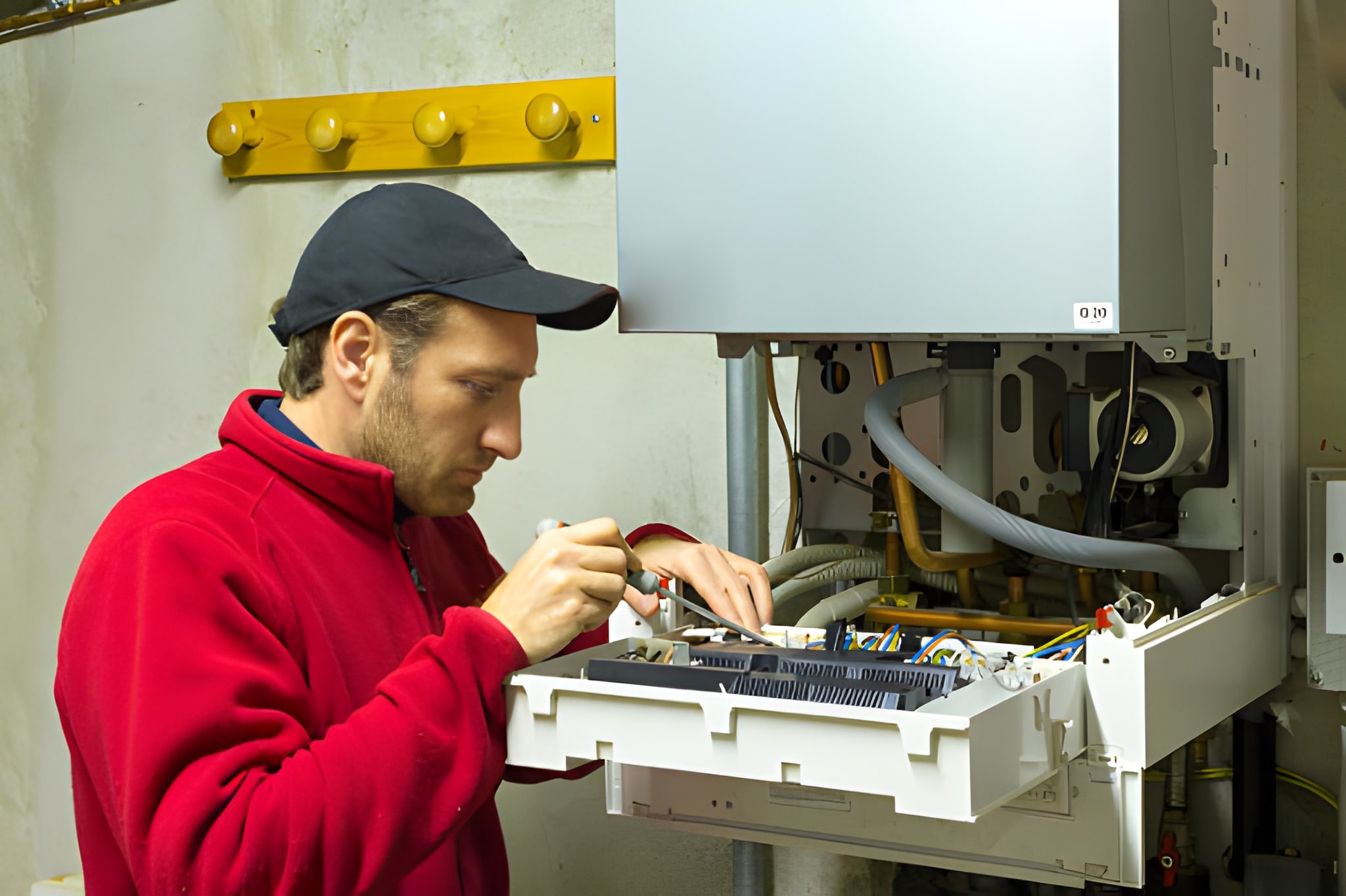Heating Maintenance in Richland Hills, TX
Proper heating maintenance in Richland Hills, TX keeps your furnace safe, efficient, and reliable when the region’s occasional cold snaps arrive. Even though North Texas winters are typically mild, sudden temperature drops, seasonal humidity shifts, and local dust and pollen mean furnaces and heat pumps can suffer from neglected care. Regular, professional maintenance reduces the risk of breakdowns, protects manufacturer warranties, and preserves indoor comfort and air quality for homes in Richland Hills.

Common heating problems in Richland Hills homes
- Clogged or dirty filters and coils from seasonal pollen, dust, and construction debris.
- Short-cycling or uneven heating caused by airflow restriction or improper thermostat calibration.
- Pilot light or ignition failures on older gas furnaces after long idle periods.
- Reduced efficiency due to worn blower motors, belts, or dirty heat exchangers.
- Safety risks from undetected gas leaks or elevated carbon monoxide (CO) from incomplete combustion.
- Unexpected failures during short cold snaps when systems are taxed after months of light use.
What a seasonal heating Tune-Up includes
A professional seasonal Tune-Up ensures your system is ready for use and compliant with warranty requirements. Typical checklist items:
- Visual system inspection: cabinet, burners, venting, and condensate drainage.
- Filter check and replacement recommendation based on filter type and household needs.
- Heat exchanger inspection for signs of cracking, corrosion, or soot.
- Gas line and connection inspection for leaks and secure fittings.
- Ignition system and pilot assembly cleaning and testing.
- Blower motor inspection: cleaning, lubrication if applicable, and belt condition check.
- Electrical safety inspection: wiring, terminals, fuses, and contactor operation.
- Thermostat verification and temperature differential testing.
- Airflow and static pressure measurement to confirm supply and return balance.
- Safety controls test: limit switches, rollout switches, and emergency shutoffs.
- Combustion performance check and CO level measurement for gas-fired systems.
- System cycling and run-time assessment to ensure reliable operation.
Safety inspections explained simply
Safety checks are a core part of any heating maintenance visit and protect your household:
- Heat exchanger inspection: small cracks can allow combustion gases to mix with your home’s air. Technicians inspect visually and by testing hour-to-hour performance where necessary.
- Gas connection checks: a pressure and leak check ensures the fuel supply is secure and free of leaks.
- Electrical safety: loose or corroded connections create fire risk and premature component failure; technicians tighten and test wiring and controls.
- CO testing: measuring carbon monoxide at the furnace and in living spaces confirms combustion is clean and vents are working properly.
Filter and component replacement schedules
A maintenance plan includes recommended replacement intervals customized for your home:
- Disposable filters (1–3 inch): check every 1 month; replace every 1–3 months depending on pets, allergies, and pollen.
- Pleated filters (4–5 inch): inspect quarterly; typically replace every 3–6 months.
- Permanent or washable filters: clean every 1–3 months and replace if damaged.
- Blower belts and bearings: inspect annually; replace when cracked or showing excessive wear.
- Ignition assemblies, thermocouples, and pilot components: inspect annually and replace on failure or as advised.
- Capacitors, contactors, and relays: tested annually; replace proactively if degraded to avoid emergency failures.
In Richland Hills, higher spring and fall pollen levels and intermittent construction dust in growing neighborhoods make more frequent filter checks advisable. Homes with pets or family members who have allergies should plan on more frequent filter changes.
Efficiency and performance testing
Maintenance is more than a quick visual check. Proper testing verifies efficiency and performance:
- Airflow and static pressure testing to ensure the system is delivering the right volume of air.
- Temperature split testing to confirm the system is heating effectively.
- Electrical load and amperage testing on motors and compressors to spot failing components before they seize.
- Combustion and CO testing for gas systems to confirm safe, efficient burning.
- Thermostat calibration and control checks to prevent short cycles and comfort issues.
These tests identify small problems early, which preserves efficiency and avoids the high cost of mid-winter emergency repairs.
Benefits of preventative heating maintenance
- Longer equipment life: regular cleaning and lubrication reduce wear on moving parts.
- Fewer emergency breakdowns: technicians catch failing components before they cause system-wide failure.
- Improved efficiency: clean coils, correct airflow, and tuned combustion lower energy use and reduce utility bills.
- Maintained warranties: many manufacturer warranties require documented annual maintenance to remain valid.
- Better indoor air quality: clean filters and ducts reduce dust, pollen, and allergen circulation.
- Enhanced safety: routine CO checks and gas leak inspections reduce the risk of poisoning or fire.
Maintenance plans, enrollment, and how they tie into service agreements
Maintenance plans are structured to provide predictable, scheduled care and clear records that support warranty requirements. Typical plan features:
- Scheduled seasonal visits (fall heating Tune-Up and optional spring check).
- Priority scheduling for repair calls during peak season.
- Written inspection reports and maintenance records for warranty compliance.
- Discounted diagnostic or repair labor rates included in some agreements.
- Automated reminders and service history tracking so maintenance stays current.
Enrollment commonly begins with an initial system evaluation that documents system condition, recommended services, and an agreed maintenance schedule. Plans are often paired with broader service agreements to define response times, coverage parameters, and recordkeeping that manufacturers and home insurers may require.
Final notes on maintenance for Richland Hills homeowners
Because North Texas can swing from mild to suddenly cold, keeping your heating system serviced year-round is a practical way to protect your comfort and budget. Regular maintenance tailored to the local dust, pollen, and intermittent cold snaps common in Richland Hills reduces emergency repairs, preserves warranties, and helps your system run cleaner and longer. Planning seasonal Tune-Ups and following recommended filter and component schedules will keep your home safe, efficient, and comfortable throughout the heating season.

Flexible Financing Options
Explore our range of flexible financing options designed to suit your needs and budget.













